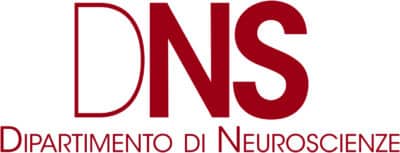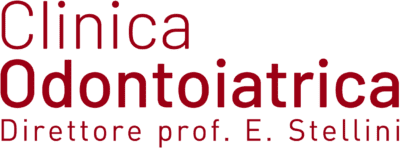

The Second-level Short Specialisation Degree in Digital implantology is a Second Level Short Specialisation Degree that prepares Dentistry and Dental Prosthetics graduates in deepening their knowledge on digital implant dentistry.
The one-year theoretical and practical course thoroughly explores the digital workflow: from virtual planning to surgery and implant prosthetics finalization.
The purpose of the Master’s Course is to provide specific competencies in digital dentistry.
The course units of the Second-level Short Specialisation Degree in Digital implantology include remote lessons with leading experts of the sector, who will describe techniques, procedures, advice and clinical cases with the use of digital systems.
During in-person sessions, hands-on and live surgery practice will be carried out. Attendees can try out the potential of the digital system first-hand.
The course also includes the participation to Italian conferences on relevant topics and any events organized within the Master.
The Second-level Short Specialisation Degree in Digital implantology is addressed to Dentistry and Dental Prosthetics graduates who wish to deepen their competencies in the digital implant dentistry sector, by acquiring specific skills of digital dentistry. Career opportunities will help professionals present themselves on the market as specialists in this new sector in private or public structures, by introducing the digital aspect in the day-to-day workflow.
With this preparation, attendees will optimize and speed up the treatment processes they are involved in, by promoting communication between the different stakeholders of the dental team, and will be able to participate as lecturers in national and international conferences.
The Second-level Short Specialisation Degree in Digital implantology provides training on:
Digital workflow presentation with the different dental implant systems
Managing the most modern digital flows by leading dental implant companies: the new workflows help combine the diagnostic, surgical and prosthetic part in a highly performing way.
Data and photo collection for diagnosis, dental implant-prosthetics planning and regenerative planning
Taking pictures useful to the treatment plan and case documentation.
Planning implants, prosthetics and the most suitable regenerative treatments in the best way possible.
Intra-oral scanning, 3D x-rays and integration
Using intra-oral scanners, benefits and advantages; scanning protocols and times.
Using 3D x-rays, integrating it and coupling it with intra-oral scan files.
Prosthetics and surgical planning
Collecting data (photos, CBCT, intra-oral prints) and using them for surgical-prosthetic planning.
Assessing any possible regenerative needs or treatment alternatives to minimize invasiveness without affecting the outcome.
Template creation (design and print)
Managing the different template creation software (including freeware) for dental implant positioning, both tooth- and mucosa-supported for edentulous dental arches.
Knowing how to recognizing the ideal characteristics of a template and how to create it with 3D printers.
Immediate temporary design
Planning the delivery of an immediate provisional tooth, by choosing both the implant and the abutment in advance, based on the hard and soft tissue available.
Preparing a digital flow to detect only the position of the scan bodies at the end of the surgery, in order to have a milled or printed provisional tooth in just a few hours.
Surgery on model (in-person)
Practising prosthetic and dental implant planning on dedicated software.
Placing the dental implants on artificial jaws.
Model scan with guided implant positioning (in-person)
Practising the use of the most-advanced intra-oral scanners to detect the position of positioned implants.
Creating a temporary prosthetic or using scans for a permanent prosthetics.
Assessing planning vs reality accuracy
Assessing the accuracy and the margin of error of computer-guided implant dentistry and the prosthetics obtained from a digital print.
Permanent prosthetic design
Exploring the new all-digital options for prosthetic design and integrating information and workshops.
Materials and processing for prosthetics 3.0
Familiarizing with and treating new materials and the processing options for latest-generation prosthetic rehabilitation. How to use milling centres in the best way possible.
The Second-level Short Specialisation Degree in Digital Implant Dentistry will involve the participation of leading national and international lecturers:
- dott. Alessandro Agnini
- dott. Andrea Agnini
- dott. Alberto Maria Albiero
- dott. Marco Bacilieri
- prof. Sergio Bortolini
- prof. Eriberto Bressan
- dott. Tommaso Cantoni
- dott. Raffaele Cavalcanti
- dott. Alvise Cenzi
- dott. Enrico Corrà
- dott. Giacomo Dallari
- dott.ssa Ioana Datcu
- dott. Luca De Stavola
- dott. Giacomo Fabbri
- dott. Andrea Fincato
- dott. Alessio Franchina
- dott. Stefano Gelli
- dott. Stefano Gori
- dott. Riccardo Guazzo
- dott. Massimo Ivani
- dott. Emilio Margutti
- dott. Roberto Molinari
- dott. Luca Mora
- dott. Andrea Nicali
- prof. Francesco Pera
- dott. Sergio Piano
- dott. Federico Rivara
- dott. Luca Sbricoli
- dott. Massimilano Urso
- dott. Piero Venezia
- dott. Nicola Zucchini
Moreover, it is supported by leading international dental implant companies.
The general ranking of merit for the academic year 2025/26 will be published on the Italian page of this Master according to the timing provided in the Call.
Information
FAQ
The Second-level Short Specialisation Degree comprises online lessons and in-person sessions.
Online lessons are organized every 3 weeks through a dedicated platform (e.g. Zoom).
In-person lessons and hands-on practice sessions are held at the end of the first semester (February 2026) and at the end of the second semester (September 2026) and will include 5 in-person days, from Monday to Friday, with hands-on tests.
No, there will be no additional activities to complete.
Yes, there are 2 study prizes equal to €2,500 each, which will be awarded to 2 students who will prove themselves worthy through attendance and participation.
Yes, there is a mandatory 70% attendance.
Resumes, graduate dissertation, publications and any other title deemed useful by the applicants will be evaluated

